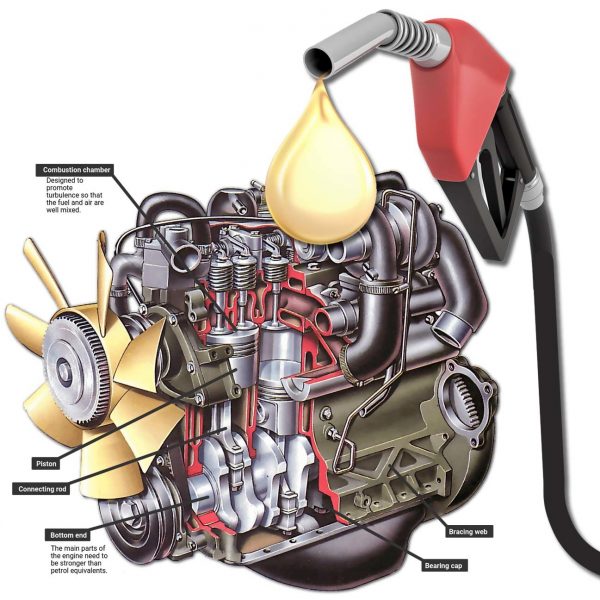Understanding Diesel Fuel Grades
Understanding diesel fuel types is essential when using any diesel engine system. That's why we have put together this blog as a resource. Be assured, while it is helpful to have the knowledge below, Hamilton Engine is here to support you and will inform you of which fuel is best. The best fuel option is one that matches your diesel engine, the application, and the local weather conditions.
Without getting too scientific, diesel is a specific mixture of hydrocarbons created by the distillation of crude oil. It is much denser than gasoline and widely known to have a higher efficiency level than other fuel types. For that reason alone, diesel is usually used for heavy equipment, including generators. Environmentally, if the engine is set up correctly, diesel fuel is one of the cleanest burning fuels.
There are a few different types of diesel, and it’s essential to understand the differences. Diesel fuel is measured by its viscosity (thickness) and the cetane level (volatility). All grades are compatible with any diesel engine, meaning you can pick which fuel source is best for your current application. The ability to switch diesel types is a benefit of diesel because each grade offers different benefits. The main types of diesel are grade 1 and grade 2. Highlighted below are some key features of each.

Diesel Fuel Grade 1:
- Lower viscosity (flows easier)
- More volatile compared to grade 2
- Lower fuel economy
- Nickname: winter diesel
Diesel Fuel Grade 2:
- Higher viscosity
- Lower volatility
- Readily available at most fuel stations
- High energy content
- High lubrication due to the presence of wax
- Extended maintenance life of the diesel engine due to higher efficiency
- Wax crystals will begin to form at 10 Fahrenheit

One reason it’s crucial to know the difference between the fuel grades is that when the temperature gets colder, the consistency of diesel becomes thicker and can even turn into a gel. Grade 1 has a lower viscosity, making it more effective in the winter. It is also possible to mix the two grades, creating winterized diesel. This blend option provides benefits from both grades, making it a viable option for cold climates.
Winterized Diesel:
- Good energy content
- Effective lubricant
- Reduced risk of fuel gelling at cold temperatures
There is one other type of diesel to mention, AG diesel, also known as red diesel. AG diesel is produced for off-road vehicles and other equipment that isn’t operable on public roads. For that reason, AG diesel isn’t subject to taxes like other fuels. The cost of AG diesel is significantly lower than other fuel types for this reason. The diesel is colored red to be distinguishable from other fuel types.
Fuel is only one of the many decisions you will be making when setting up and operating a diesel engine, but the Hamilton Engine team is here to support you through the entire process. Hamilton Engine sells and customizes diesel engines for any industrial application.
